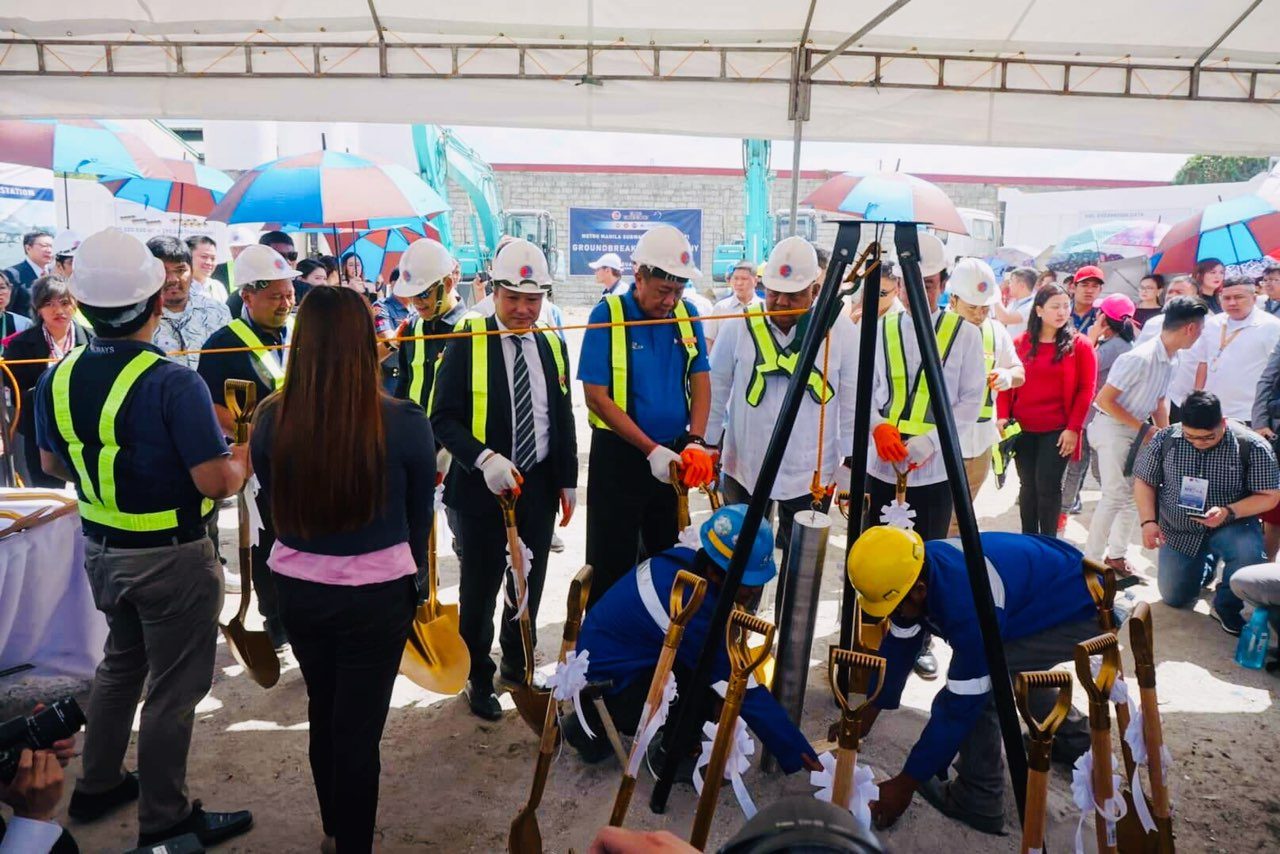SUMMARY
This is AI generated summarization, which may have errors. For context, always refer to the full article.

MANILA, Philippines – The construction of the Philippines’ first intercity underground railway officially started Wednesday, February 27.
Department of Transportation (DOTr) Secretary Arthur Tugade, along with other government officials and Japanese partners, led the groundbreaking ceremony for the P356.96-billion Metro Manila Subway on Wednesday in Valenzuela City.
“When we announced that we are doing the subway, many sectors did not believe. Marami hong nagduda…pati na ho ‘yung utter disbelief. Ang sabi ho nila, ‘Subway station? Drawing lang ‘yan….’ Sir, ma’am, ang subway station ay totoo at totoo at totoo,” Tugade said in a speech.
(When we announced that we are doing the subway, many sectors did not believe. Many were doubtful…and even expressed utter disbelief. They said, “Subway station? That’s a far-fetched plan….” Sir, ma’am, the subway station is true, true, true.)
The DOTr aims to have the first 3 stations of the 36-kilometer Metro Manila Subway running by 2022.
A Filipino-Japanese joint venture will design and build these first 3 stations – Mindanao Avenue-Quirino Highway, Tandang Sora, and North Avenue. The joint venture is composed of Shimizu Corporation, Fujita Corporation, Takenaka Civil Engineering Company Ltd, and EEI Corporation.
By 2025, all 15 stations should be fully operational, connecting Quirino Highway to the Ninoy Aquino International Airport Terminal 3 in Pasay City within 30 minutes. Subway trains will run at up to 80 kilometers per hour.
“Matagal nang deprived ang mga Pilipino ng ganitong uri ng mass transit (Filipinos have long been deprived of this kind of mass transit), and we will not take our sweet time. We will deliver this subway to the Filipino people as fast as we can, as well as we can, and without any whiff of corruption,” said Executive Secretary Salvador Medialdea in a speech.
The Shimizu joint venture will also construct the depot in Valenzuela City, electromechanical systems and rolling stock, and the facilities of the Philippine Railway Institute.
More than 180 families affected by the first phase of construction will be relocated to Barangay Bignay in Valenzuela City.
‘World-class’ subway
The Metro Manila Subway will be connected to the Light Rail Transit Line 1 and Metro Rail Transit Lines 3 and 7 via a common station along EDSA.
The DOTr gave assurances that the subway will use “proven Japanese technologies to make the system resilient against natural disasters,” given that the capital region is prone to floods.
In a speech, Japanese Ambassador to the Philippines Koji Haneda said “Japan vows nothing but a world-class mass transit system.”
“Far beyond financing and cutting-edge technology, the Philippines can count on Japan to impart our extensive experience not only in subway construction, but also in railway operation and maintenance,” added Haneda.
In March 2018, the Philippine government and the Japan International Cooperation Agency (JICA) signed a ¥104.53-billion (P49.08-billion) loan agreement for the subway, the first in a series of deals.
Of the total project cost, 73% (¥573.73 billion) will be funded by JICA through a loan arrangement comprising 3 to 4 tranches. The remaining 27% (¥215.16 billion) will be shouldered by the Philippine government.
The groundbreaking was originally targeted for December 2018, but was pushed back to February due to scheduling issues.
Other Cabinet members – Budget Secretary Benjamin Diokno, Socioeconomic Planning Secretary Ernesto Pernia, and Public Works Secretary Mark Villar – also attended Wednesday’s event.
Metropolitan Manila Development Authority Chairman Danilo Lim, Senate committee on public services vice chairman JV Ejercito, House committee on transportation chairman Cesar Sarmiento, and Valenzuela City, Malabon City, and Quezon City politicians were present as well. – Rappler.com
¥1 = P0.47
Add a comment
How does this make you feel?
There are no comments yet. Add your comment to start the conversation.